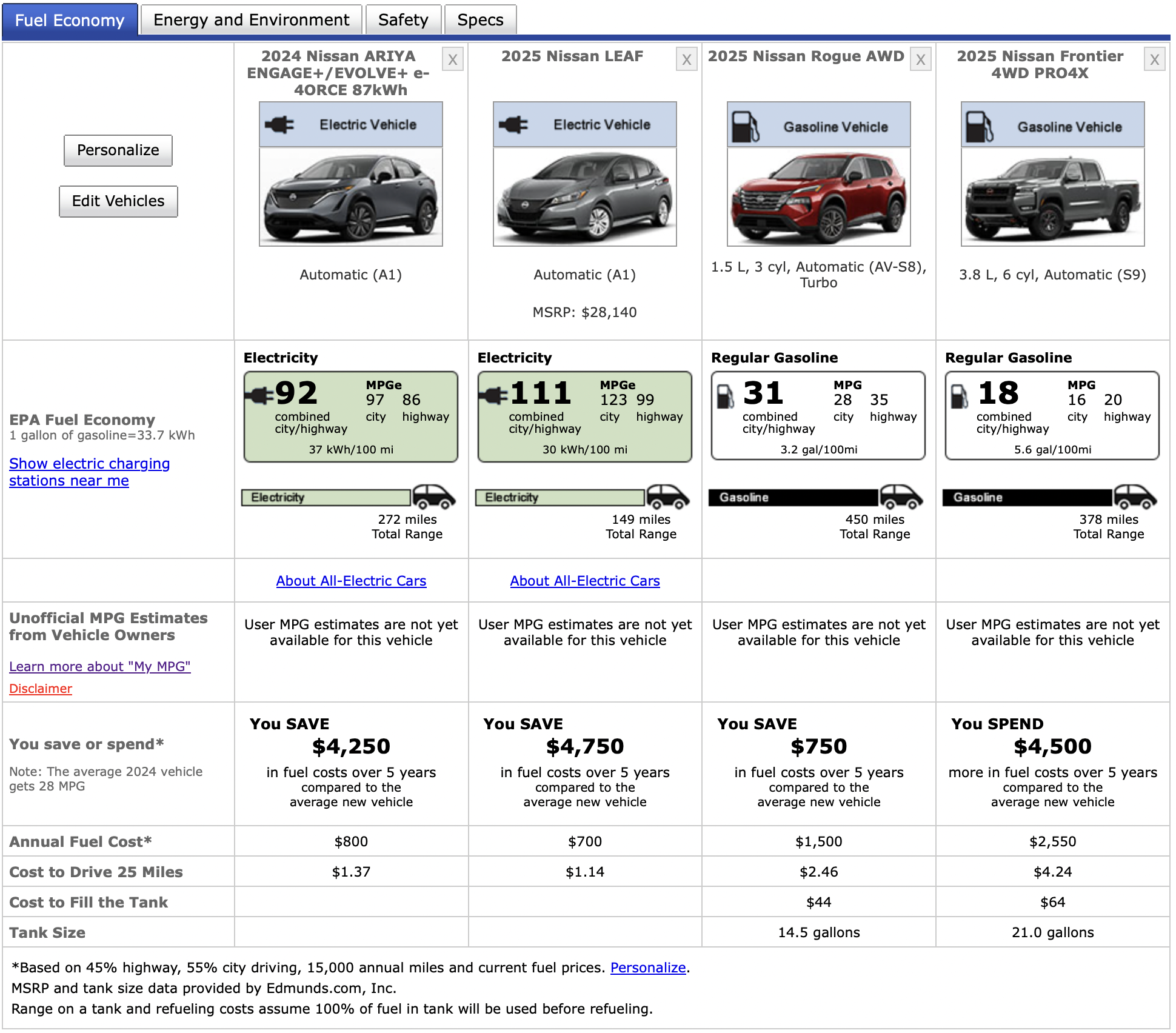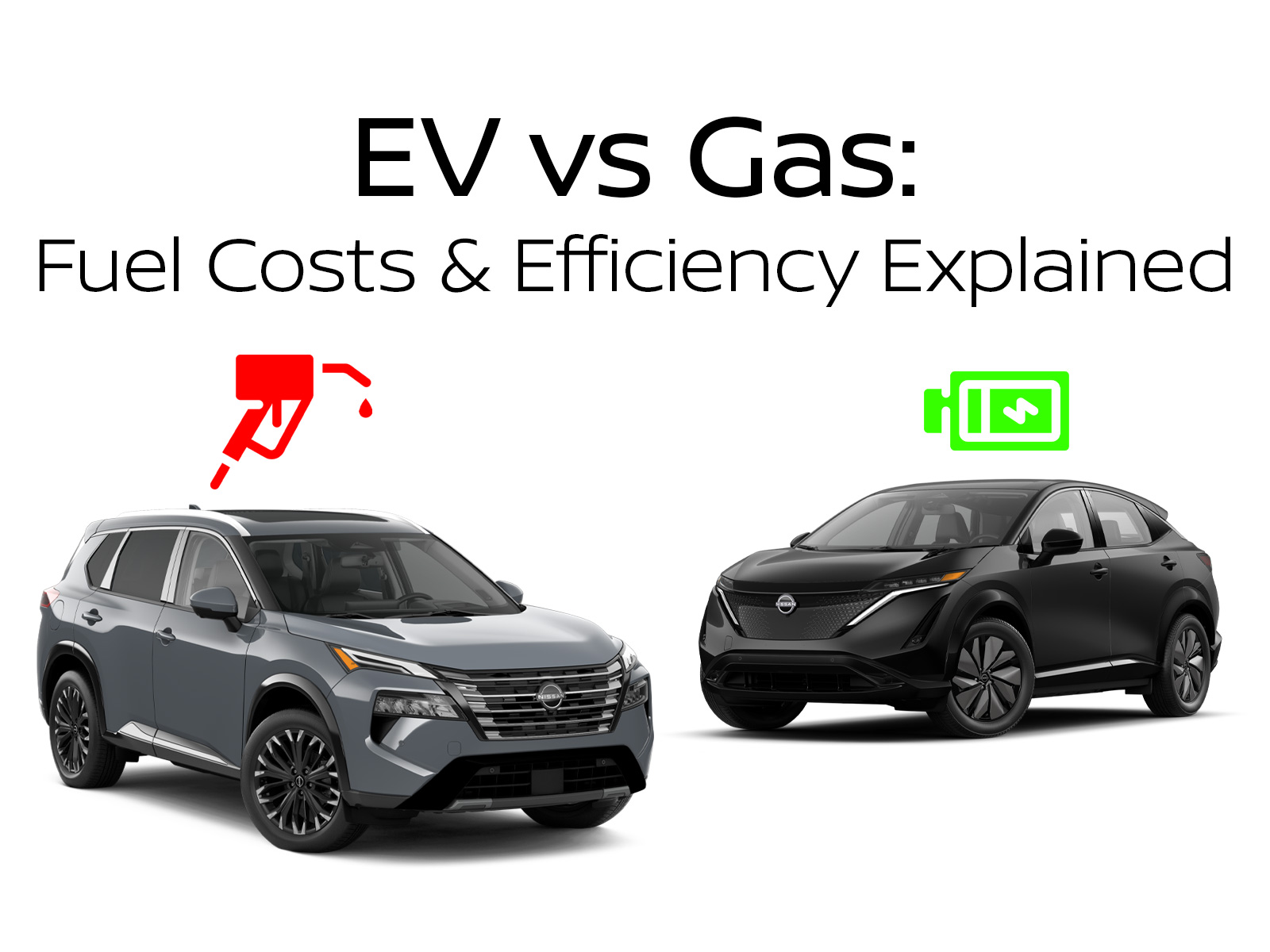What Does "MPGe" Mean?
Electric vehicles are rapidly becoming a popular choice for drivers seeking cost-effective and environmentally friendly transportation. But many car shoppers face questions about how EVs differ from traditional gas-powered vehicles, especially when it comes to fuel. One of the key metrics to understand is MPGe, or Miles Per Gallon Equivalent. In this post, we’ll break down what MPGe means, how it compares to MPG, and the cost differences between electricity and gasoline.
What Is MPGe and How Is It Calculated?
MPGe, or Miles Per Gallon Equivalent, is a measure developed by the EPA to compare the energy efficiency of electric vehicles to traditional gas-powered cars. While MPG measures how far a vehicle can travel on a gallon of gas, MPGe quantifies how far an EV can travel on the amount of electricity with energy equivalent to one gallon of gasoline.
For example, the 2024 Nissan LEAF S boasts an impressive MPGe of up to 123 in city driving. This means that using the energy equivalent to one gallon of gasoline, the LEAF can travel 123 miles—far surpassing the fuel efficiency of nearly all gas-powered vehicles. In comparison, the average gas car typically achieves only 28 MPG, highlighting the remarkable energy efficiency of EVs.
Cost of Fuel: Electricity vs. Gasoline
One of the most attractive features of EVs is their lower fueling cost. Let’s compare:
- Electricity: On average, charging an EV costs about $0.14 per kilowatt-hour (kWh) in the U.S. A full charge for a Nissan Ariya Engage with a 63-kWh battery costs around $8.82, providing up to 216 miles of range. That’s about 4 cents per mile.
- Gasoline: At $3.80 per gallon (national average), a gas-powered vehicle with a fuel efficiency of 30 MPG costs about 12.6 cents per mile.

Curious how your vehicle measures up? Whether you drive a gas-powered car or already own an EV, fueleconomy.gov lets you explore MPGe, MPG, and fuel cost comparisons for thousands of models. It’s a great way to see how efficiency and savings stack up across different vehicles!
Real-World Savings Over Time
The cost benefits of EVs extend beyond "fueling." EVs typically have fewer moving parts than gas-powered cars, meaning lower maintenance costs. Coupled with tax incentives, the long-term financial advantages become even more significant.
The Colorado state tax credit of up to $5,000 for EV buyers further enhances the affordability of models like the Nissan LEAF and Ariya. (Note: This tax credit will be reduced by $1,500 starting January 1, 2025, so now is an excellent time to act.)
Conclusion
Electric vehicles aren’t just good for the environment—they’re a smart financial choice, too. With metrics like MPGe to demonstrate their efficiency, and the ongoing cost savings on charge and maintenance, EVs like the Nissan LEAF and Ariya make a compelling case for going electric.
Curious to learn more or take one for a spin? Visit Boulder Nissan today to explore our inventory and take advantage of our EV lease specials before the year ends.



